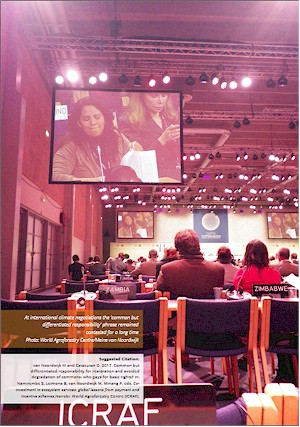| Book Chapter |
 |
|
| Title | Common but differentiated responsibility for restoration and avoided degradation of commons: who pays for basic rights? | | Author | Meine van Noordwijk and Delia Catacutan | | Editors | Sara Namirembe, Beria Leimona, Meine van Noordwijk and Peter Akong Minang | | Year | 2017 | | Book Title | Co-investment in ecosystem services: global lessons from payment and incentive schemes | | Pages | 1-12 | | Call Number | BC00441-17 |
|
| Abstract: |
| Commons, in the original meaning of land that is managed at community scale, have been privatized or taken over by the state as part of ‘development’ in many parts of the world in various stages of history. Part of the rationale for this was that communities weren’t strong enough institutionally to control the private interest of individuals, leading to overexploitation and resource degradation. Privatization was seen as a means to make overexploitation uneconomical and facilitate investment in land productivity and restoration. Elsewhere, the state took over claiming to be better stewards in securing national interests. “The real tragedy of the commons is that people believe collective action cannot effectively defend common interests”. In chapter 1, the spectrum of paradigms in PES was described as ranging from a private-lands commodification on one hand and collective-action co-investment on the other |
|
|
Download file(s): Click icon to download/open file.
|
| |
File Size |
Description |

|
1168 KB |
Softcopy |
|
|
|
| Viewed in 239 times. Downloaded in 193 times. |